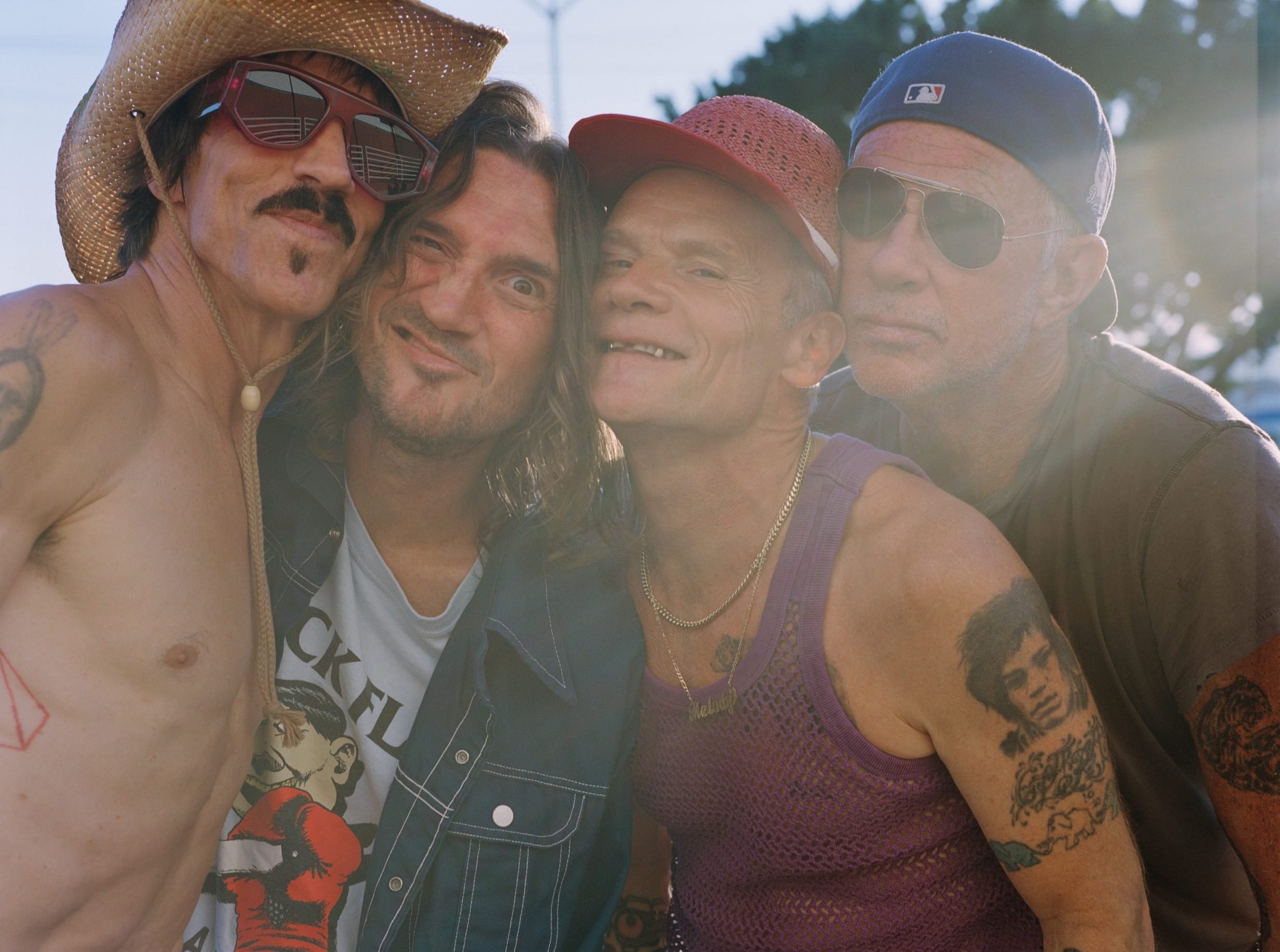RED HOT CHILI PEPPERS - UNLIMITED LOVE
The latest instalment in the Red Hot Chili Peppers’ rhythmic ramblings is no less enjoyable than it is predictable for the band that have been turning frontman Anthony Kiedis’ musings into funk-rock for near 40 years.
What makes their newest record, Unlimited Love, differ from their recent releases is John Frusciante on guitar, returning to the band after his 2009 departure. With his homecoming also returns the musical feel of a melodic breeze and the band’s tangible comfortability in simply being the Chili Peppers, loved for their ability to blend nonsensical lyricism with a beat so enticing that the listener forgets to care about what is being said, and decides to simply sing along with it.
Brought to life by steady opener ‘Black Summer’, the album begins to the band at its most recognisable, blending Kiedis’ California soul vocals with Frusciante’s guitar licks that reinstate him as the catalyst of the band’s magic.
The bass-led kickstart of second track ‘Here Ever After’ marks it as a song built for live performance, where the crescendo from steady rhythm into full-blown crowd thriller is reminiscent of fan-favourite ‘Dani California’ from their 2006 release, Stadium Arcadium.
It is hard to conceivably envision that the band does not recognise what sound works for, and is synonymous of them, and the majority of the tracks on Unlimited Love benefit from this. Melodic rhythm into heavy drums, laced with Flea’s iconic steady bass, Kiedis’ mystifying lyrics and a funk feel which fortifies the iconic Red Hot Chilli Peppers sound throughout. They have carved out their sound, and this album rarely differs from it.
Soulful ‘Not the One’ allows the album to glide into a more solemn lyrical field, where the listener is offered an unfiltered glimpse into the deeper emotions of Kiedis. The track suggests that, despite his success and the ideations of him as a rock star, the frontman views himself as somewhat incomplete, asking to be moulded into the idealised version of himself that his lover sees, and to be freed from his own reflection.
The album hits a halfway point with ‘Bastards of Light’, a playful tune that is composed as a mash of country-electro-funk sprinkled with tongue-in-cheek lyrics, offering a lively addition to an album which is weighted down by its 17-track list.
Similarly, later tracks ‘White Braids & Pillow Chair’ and ‘Let ‘Em Cry’ offer little in the way of meaningful lyricism but provide a spirited and rhythmic melody, which would fit as the backing track to any hazy summer afternoon.
Truthfully, the Red Hot Chili Peppers have forged such an iconic sound for themselves that, at times, it feels as though the album was written to reflect these musical tropes, as opposed to offering any newness to their catalogue. And though this may be true, the question can be asked as to whether a band who have successfully divulged into their own sub-genre of sound, whereby it takes just seconds of a Frusciante solo, or one line delivered in Kiedis’ signature drawl to know exactly whom one is listening to, needs to switch up their style?
On stand-out track ‘These Are the Ways’, Kiedis asks “Have we all had enough? Have we all had too much?”, and, if here he was referring to the musical stylings of his own band, then perhaps one could suggest that you simply cannot have too much of a good thing.
Hannah Foster
★★★☆☆

